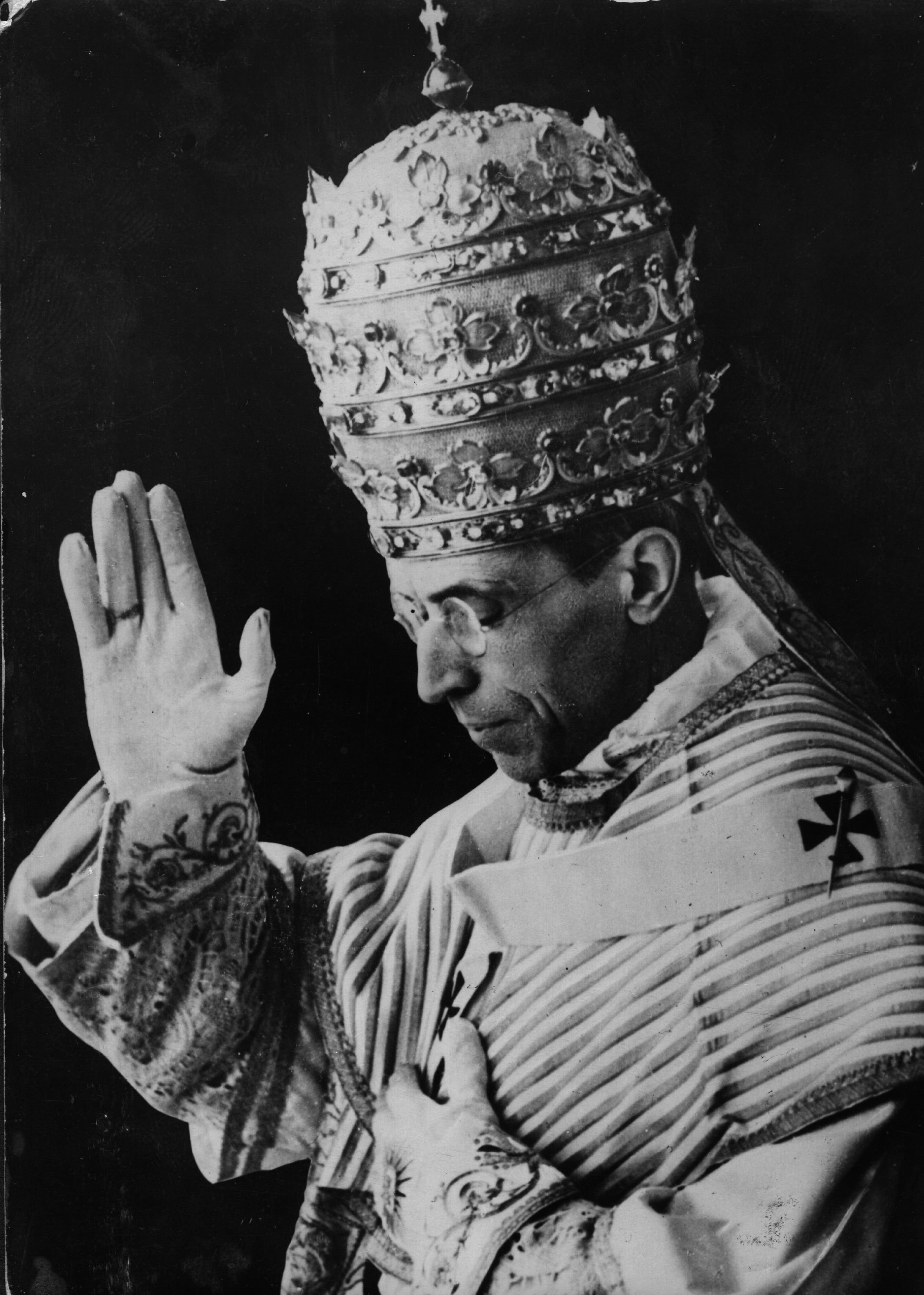Pius XII on Pleasure
The following is an except from Pius XII’s “Address to Midwives on the Nature of Their Profession,” emphasis added.
The same Creator, Who in His bounty and wisdom willed to make use of the work of man and woman, by uniting them in matrimony, for the preservation and propagation of the human race, has also decreed that in this function the parties should experience pleasure and happiness of body and spirit. Husband and wife, therefore, by seeking and enjoying this pleasure do no wrong whatever. They accept what the Creator has destined for them.
Nevertheless, here also, husband and wife must know how to keep themselves within the limits of a just moderation. As with the pleasure of food and drink so with the sexual they must not abandon themselves without restraint to the impulses of the senses. The right rule is this: the use of the natural procreative disposition is morally lawful in matrimony only, in the service of and in accordance with the ends of marriage itself. Hence it follows that only in marriage with the observing of this rule is the desire and fruition of this pleasure and of this satisfaction lawful. For the pleasure is subordinate to the law of the action whence it derives, and not vice versa—the action to the law of pleasure. And this law, so very reasonable, concerns not only the substance but also the circumstances of the action, so that, even when the substance of the act remains morally safe, it is possible to sin in the way it is performed.
The transgression of this law is as old as original sin. But in our times there is the risk that one may lose sight of the fundamental principle itself. At present, in fact, it is usual to support in words and in writing (and this by Catholics in certain circles) the necessary autonomy, the proper end, and the proper value of sexuality and of its realization, independently of the purpose of procreating a new life. There is a tendency to subject to a new examination and to a new norm the very order established by God and not to admit any other restraint to the way of satisfying the instinct than by considering the essence of the instinctive act. In addition there would be substituted a license to serve blindly and without restraint the whims and instincts of nature in the place of the moral obligations to dominate passions; and this sooner or later cannot but turn out to be a danger to morals, conscience and human dignity.
If nature had aimed exclusively, or at least in the first place, at a reciprocal gift and possession of the married couple in joy and delight, and if it had ordered that act only to make happy in the highest possible degree their personal experience, and not to stimulate them to the service of life, then the Creator would have adopted another plan in forming and constituting the natural act. Now, instead, all this is subordinated and ordered to that unique, great law of the “generatio et educatio prolis,” namely the accomplishment of the primary end of matrimony as the origin and source of life.
Unfortunately, unceasing waves of hedonism invade the world and threaten to submerge in the swelling tide of thoughts, desires and acts the whole marital life, not without serious dangers and grave prejudice to the primary duty of husband and wife.
This anti-Christian hedonism too often is not ashamed to elevate itself to a doctrine, inculcating the ardent desire to make always more intense the pleasure in the preparation and in the performance of the conjugal union, as if in matrimonial relations the whole moral law were reduced to the normal performance of the act itself, and as if all the rest, in whatever way it is done, were to be justified by the expression of mutual affection, sanctified by the Sacrament of Matrimony, worthy of praise and reward before God and conscience. There is no thought at all of the dignity of man and of the Christian—a dignity—which restrains the excess of sensuality.
Pius XII. “Address to Midwives on the Nature of Their Profession.” October 29, 1951.
Want More Content Like This?
Sign up to get our exclusive Marital Intimacy Assessment. Plus, if you sign up for SMS, we'll text you a code to download our Yes, No, Maybe sexual exploration guide for Catholics for FREE! We respect your privacy and will never sell your information.
Subscribe
